Can Carob save a Nation?
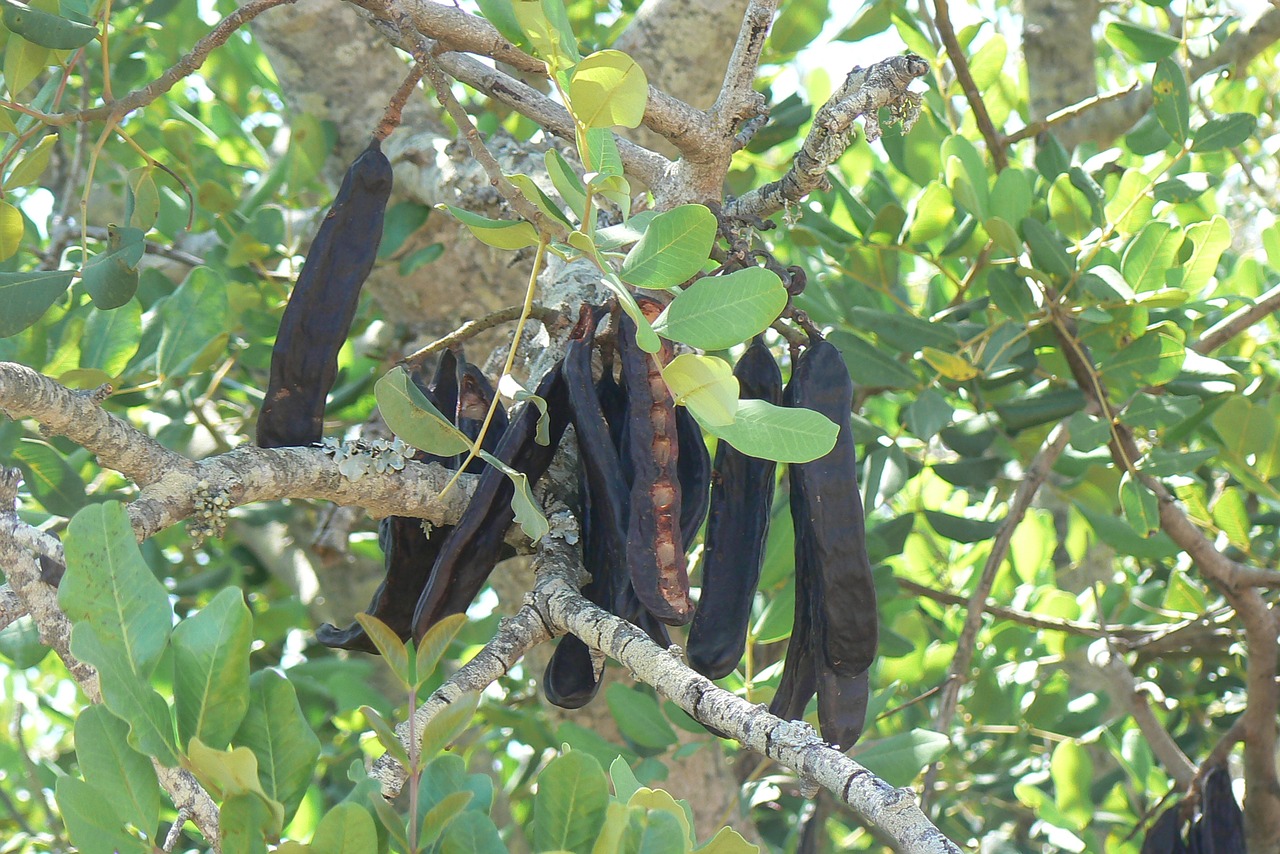
– CAN CAROB SAVE A NATION? The Policy Times, By Nora Martetschläger. • French: World New, 14 Octobre 2020. • Arabic: Al Bayader, 14 Octobre 2020. Benefits of Carob Now and Then and Its Potential for Sustainable Development in Morocco. The carob tree has been appreciated for its various features throughout the ages. Nowadays, people are starting
let’s plant pomegranate trees in partnership with al elefa cheese of lalla takerkoust cooperative in lalla takerkoust
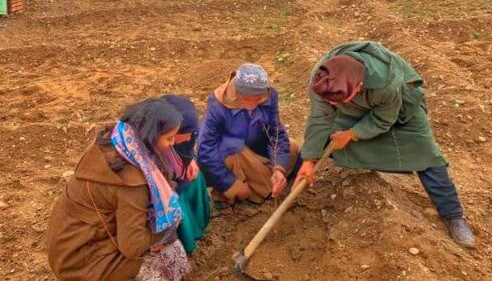
Hajiba Boumasmar HAF Tree Monitoring Officer On Monday, 20 January, the High Atlas Foundation commemorated the annual day of tree planting when most of the members of the Foundation came out with Moroccan and foreign volunteers to plant organic trees in the various Moroccan provinces: Al-Haouz, Agadir, Youssoufia, Rabat, and Fez. This day saw the
What Does the 20th of January Mean to Haf?
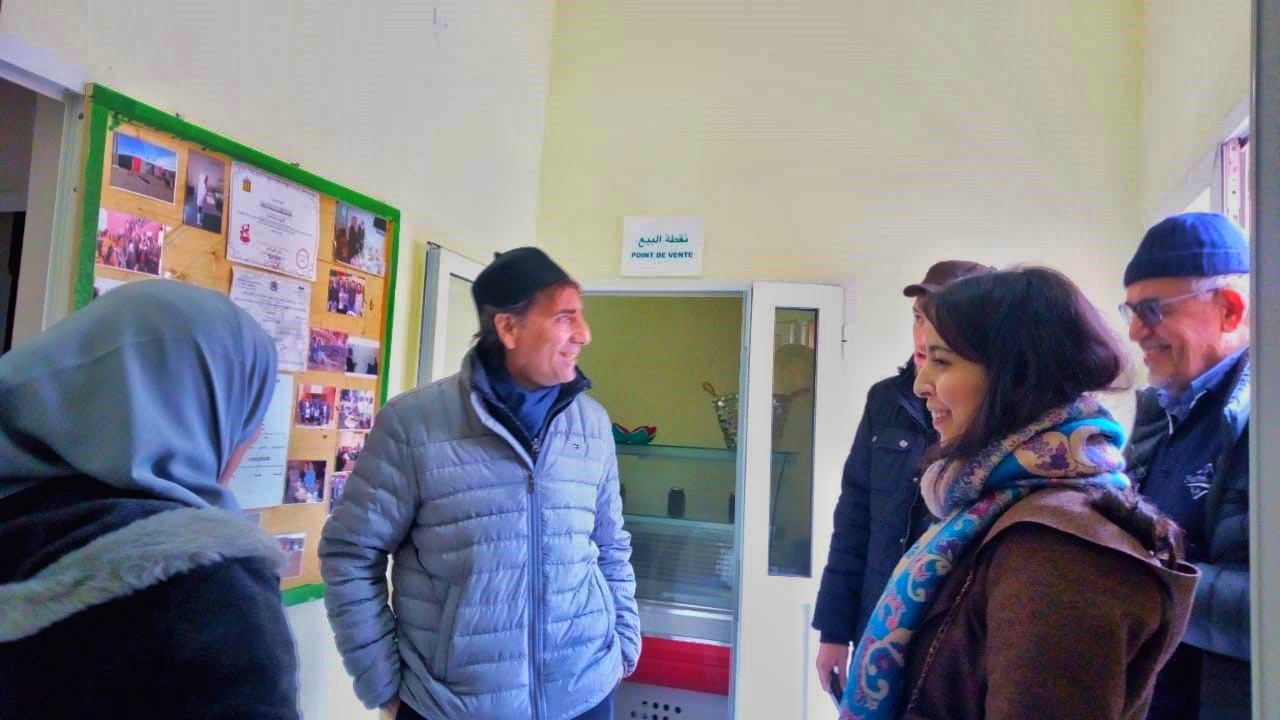
Sanae Benaadim HAF’s Office Manager Every third Monday of January, HAF takes the initiative of planting trees in different places around Morocco. I heard many positive things about this special day back when I was a volunteer. And I wished to be part of it one day! President Dr. Yossef Ben-Meir, USAID Driver Lahcen Ait
التشجير أولوية الجميع
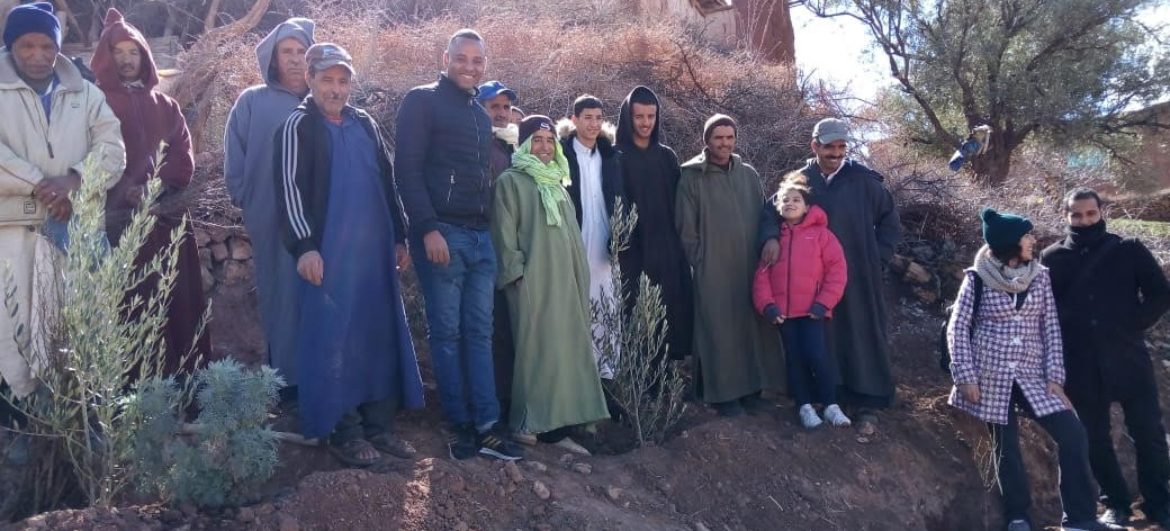
يوم وطني نظمته مؤسسة الاطلس الكبير بقلم محمد القادري متدرب مع مؤسسة الاطلس الكبير تحتفل مؤسسة الاطلس الكبير في كل سنة بيوم وطني تسعى من خلاله الى غرس العديد من الاشجار بجل مناطق المغرب لخلق الشعور بالارتباط وتعزيز بناء الشراكات ولما لهذه المبادرة ايضا من اهمية كبيرة سواء من خلال التشجيع على ثقافة التشجيرأو على
“Plant a Tree Even If It’s the Day of Resurrection” Said the Prophet Muhammad (Peace and Blessings Be upon Him).
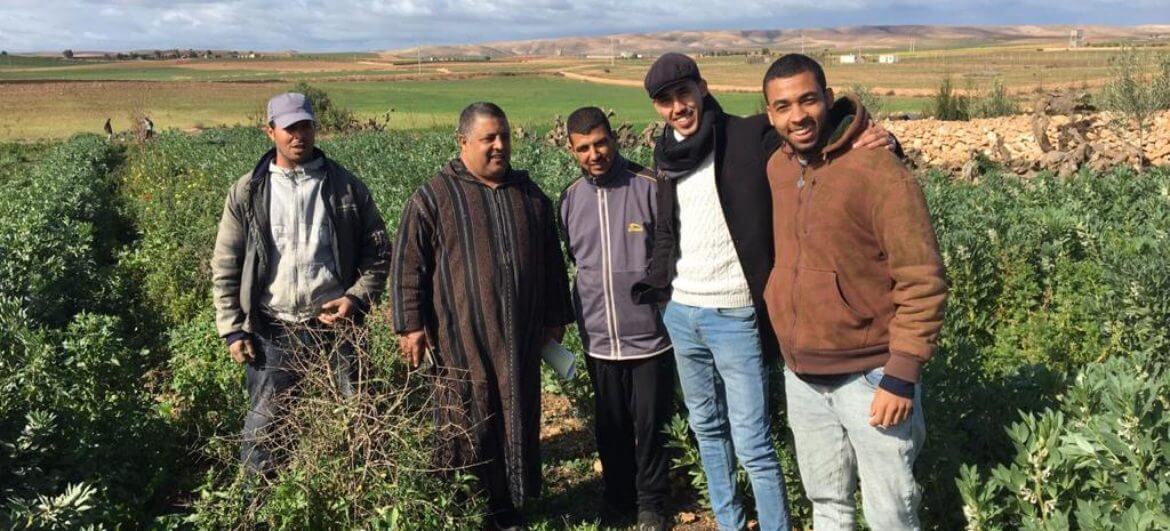
By Errachid Montassir Project Manager Every third Monday of January is the High Atlas Foundation’s annual event “Tree Planting Day.” On this date, all staff members and volunteers come together and plant organic fruit trees across nearly a dozen regions in Morocco. My site this year was the Sbaiaat municipality in El youssoufia province, where
Reflecting on a Day of Planting
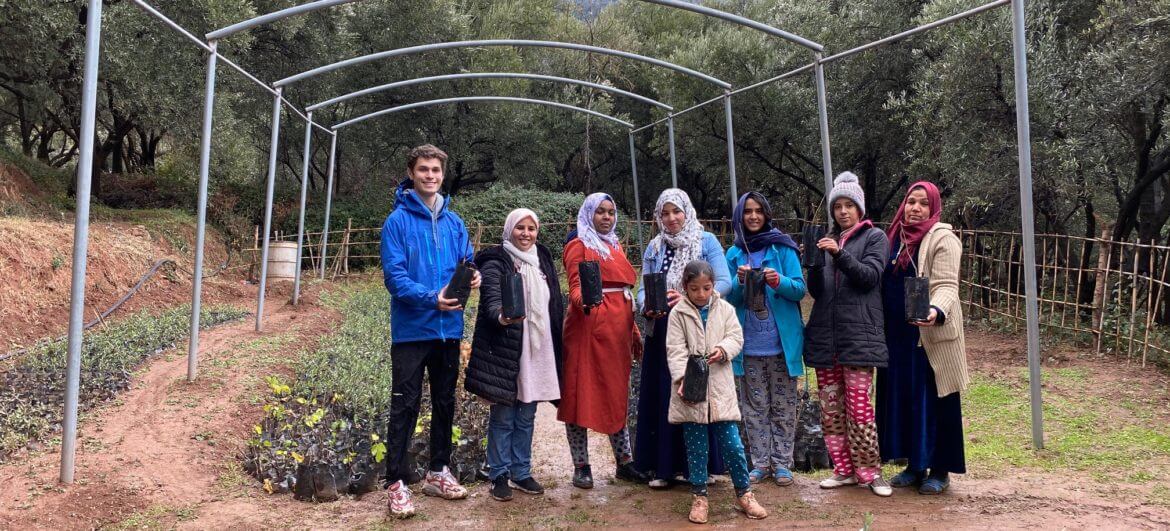
By Nic Pantelick HAF Volunteer My Tree Planting Day began with a rain-soaked Marrakech morning. For the first time since I had arrived in Morocco, I felt the chill of winter cutting through me. This biting cold wormed its way past my meager layers and rested an icy hand on the back of my neck.
Journee Nationale De Plantation D’arbres Province D’al Haouz, Asni, Le 20 Janvier 2020
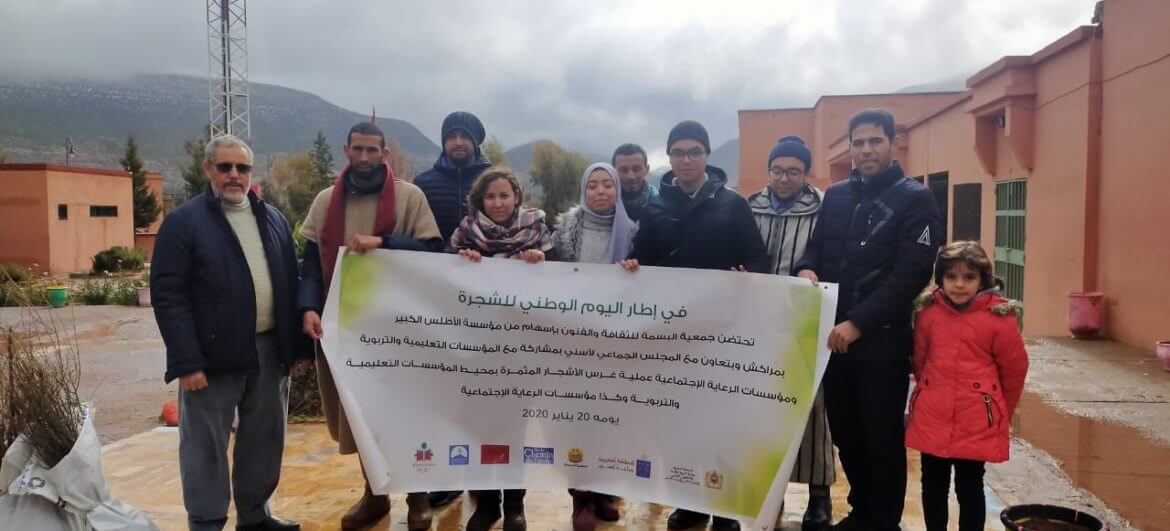
By Imane Akhezzane HAF Project Manager A l’occasion de la journée nationale de plantation d’arbres qu’organise la fondation du Haut Atlas (HAF) chaque année, j’ai eu la chance de visiter le lycée d’Asni, le collège, dar Talib, Dar Taliba et Dar Alfatat pour planter 100 arbres amandiers, et grenadiers. Des membres de la direction des
Let’s Make It Green on January 20th: High Atlas Foundation Will Plant Thousands of Trees
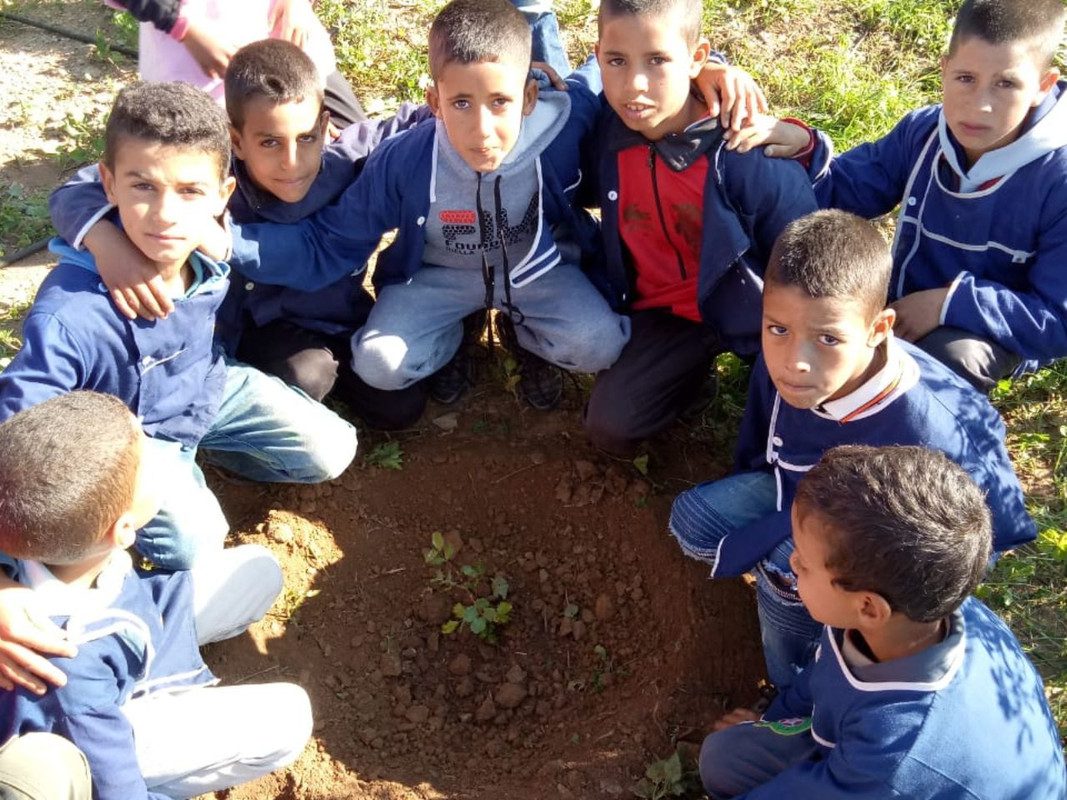
– Let’s make it green on January 20th: High Atlas Foundation will Plant Thousands of Trees, The Policy Times, 18 January 2020. MARRAKECH, Morocco – Jan. 10, 2020 – As the new year begins, the High Atlas Foundation (HAF) would like to invite Moroccan communities to aid in the planting of thousands of trees on Monday,
A Life for Future Generations: Planting in a Nursery
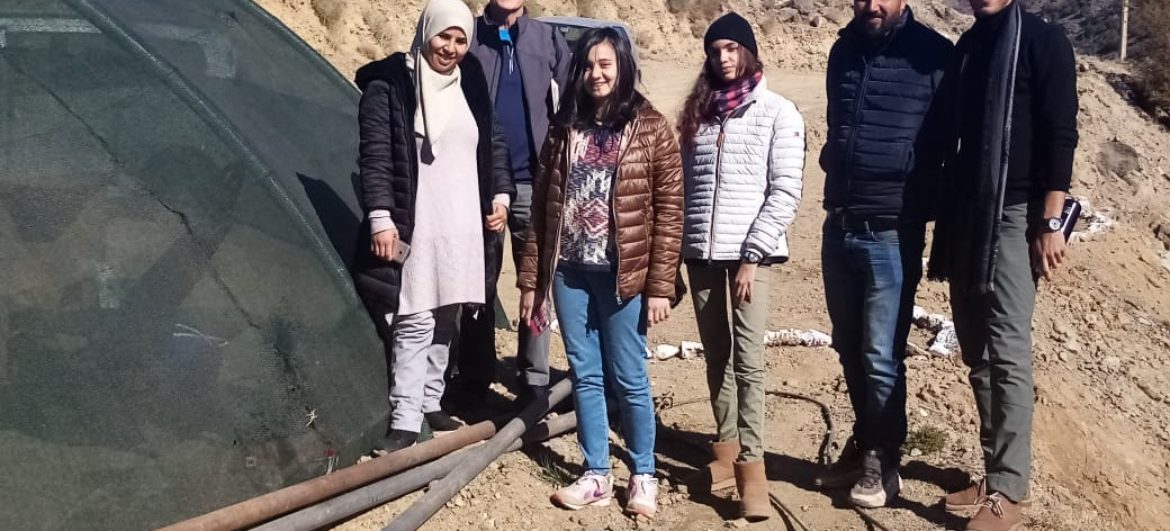
HAF Intern After our team had a traditional breakfast in the town of Asni, we needed to go further into the atlas to help the greenhouse nurseries expand. Our first destination was a nursery in Imigdal. They had one greenhouse and a few terraces. There were approximately 30,000 fruit trees, with a variety of food
Bonjour, Je M’appelle Giovane, Je Suis Brésilien Et Je Suis Un Voluntaire À La Fondation Du Haut Atlas En Janvier.
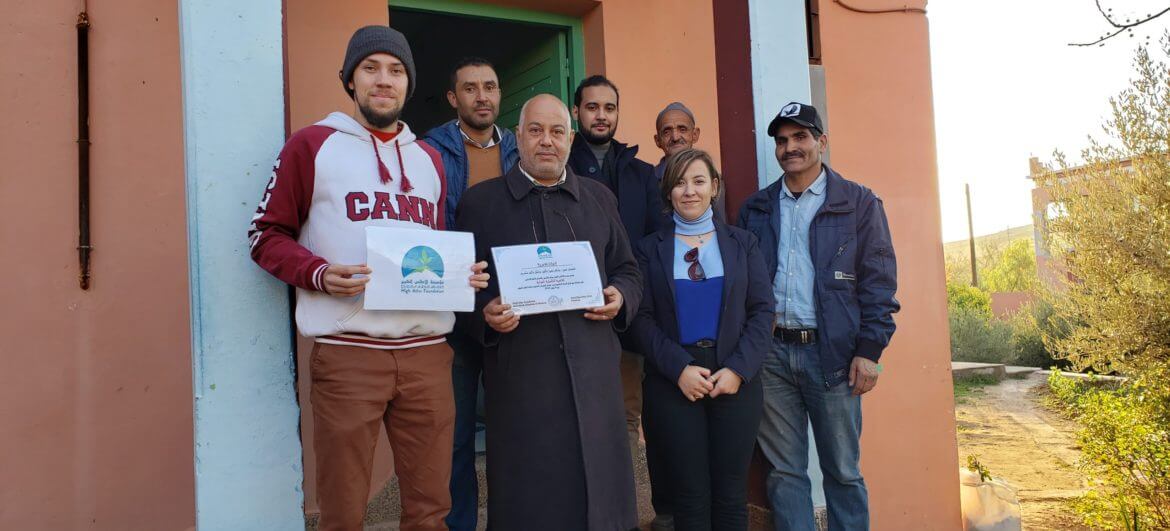
Le Jeudi 9 janvier 2020, j’étais très heureux de pouvoir assister à un atelier au lycée de Touama, j’ai pu voir des différences culturelles illustrées par les opinions des jeunes du Maroc et du Brésil et la plus remarquable est la conscience de la nécessité de protéger l’environnement. Le Brésil est responsable de la garde
Field Trips to Al Haouz and Rhamna
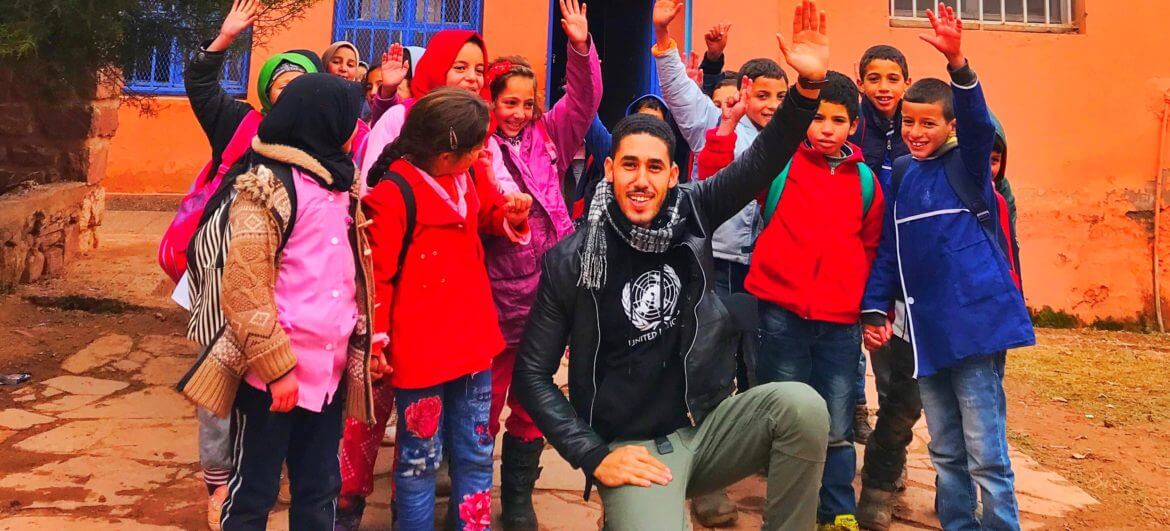
Errachid Montassir HAF Project Manager Recently, the High Atlas Foundation and Kids International Dental Services organization (KIDS) came together to help advance rural children’s health care. KIDS’ leader Alison Blue and I visited Anamer and Ait Lkak villages in Oukaimdan (Al Houz) and Bouchan (Rhamna). We were there to arrange and prepare for an upcoming
So Much Depends upon a Tree
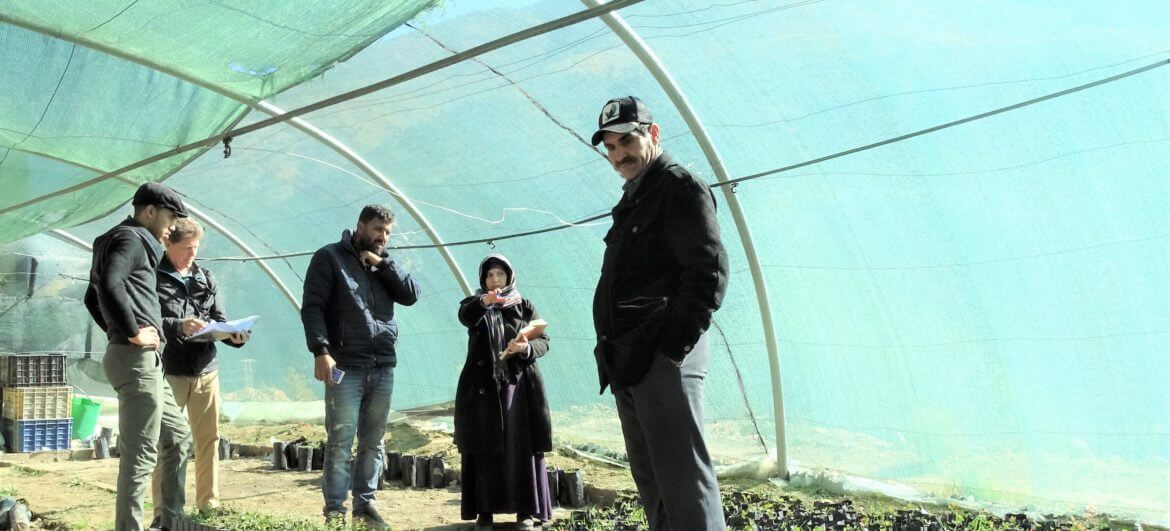
Prof. Ellen Hernandez HAF Volunteer On a sunny, winter morning, our team leaves the HAF office for Al Haouz province. Today, we will visit two nurseries with an American business expert – a USAID Farmer-to-Farmer Volunteer – who will devise a plan for each cooperative to help improve productivity. Our team includes our driver, the
Growing Hope in Touama Village
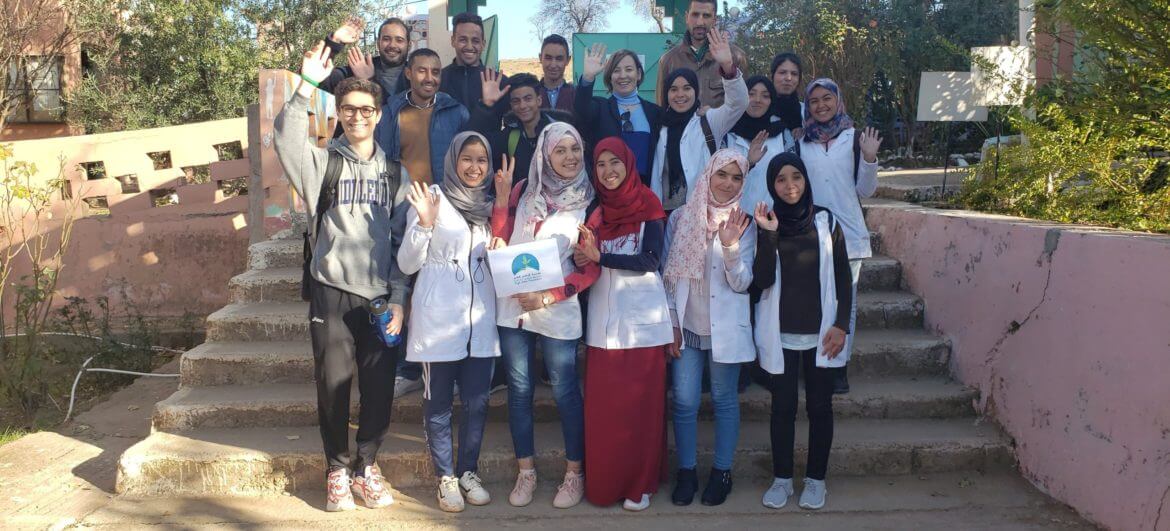
Nic Pantelick HAF Volunteer Yesterday, I traded the sprawling city of Marrakech for the rolling foothills and winding roads of the Moroccan countryside. Watching this buzzing metropolis retreat through the back window of the car we rode in, I was filled with excitement. After an hour of driving and stop for lunch, we arrived at
Strategic Planning Training Summary
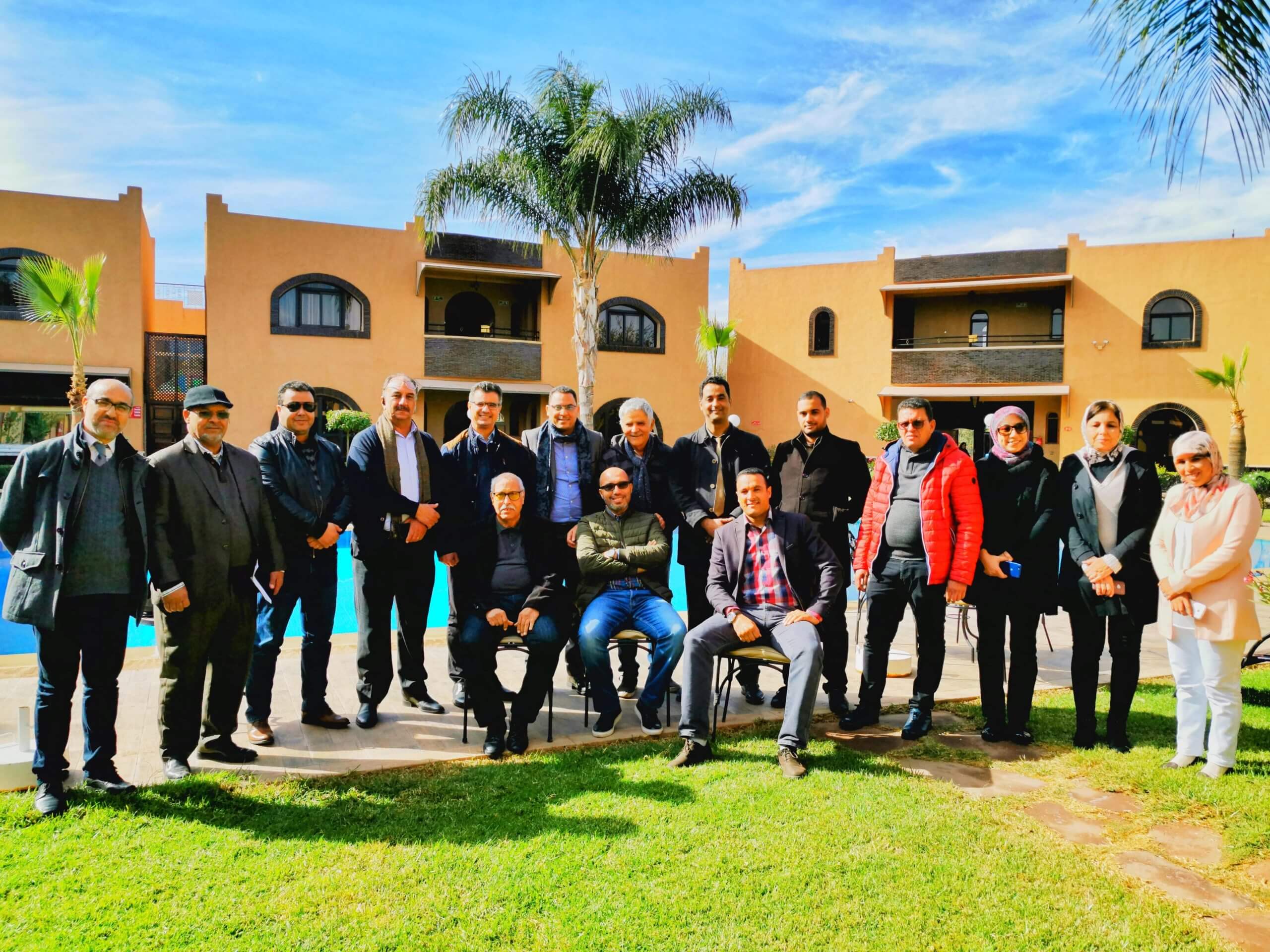
Karam-Yane Azzabi, Tahannaout HAF Financial Manager From 25 to 27 November 2019, in Tahannaout (Al Haouz province, Morocco), several public sector actors local association representatives participated in a strategic planning training session along with High Atlas Foundation (HAF) members Amina El Hajjami (Project Director) and Karam-Yane Azzabi (Financial Manager). This event was sponsored by Morocco’s
Haf to Plant 1.2 Million Seeds in 11 Fruit Tree Nurseries in 2020
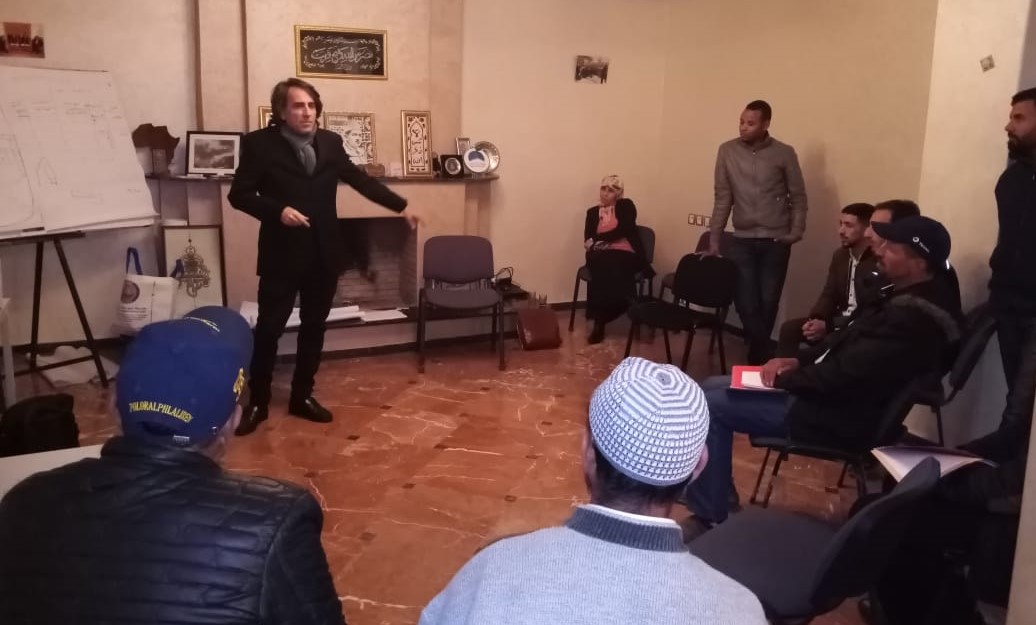
Hajiba Boumasmar HAF Monitoring Officer For the entire day at the headquarters of the High Atlas Foundation in Marrakech, a meeting took place with HAF’s nursery caretakers, together with HAF’s President Yossef, Director of Projects Amina, Project Manager Said, and Monitoring Officer Hajiba. As part of the 2020 project to plant in 11 nurseries 1.2
Planning Hafs New Intercultural Tree Nursery and Philosophical Thoughts on Life
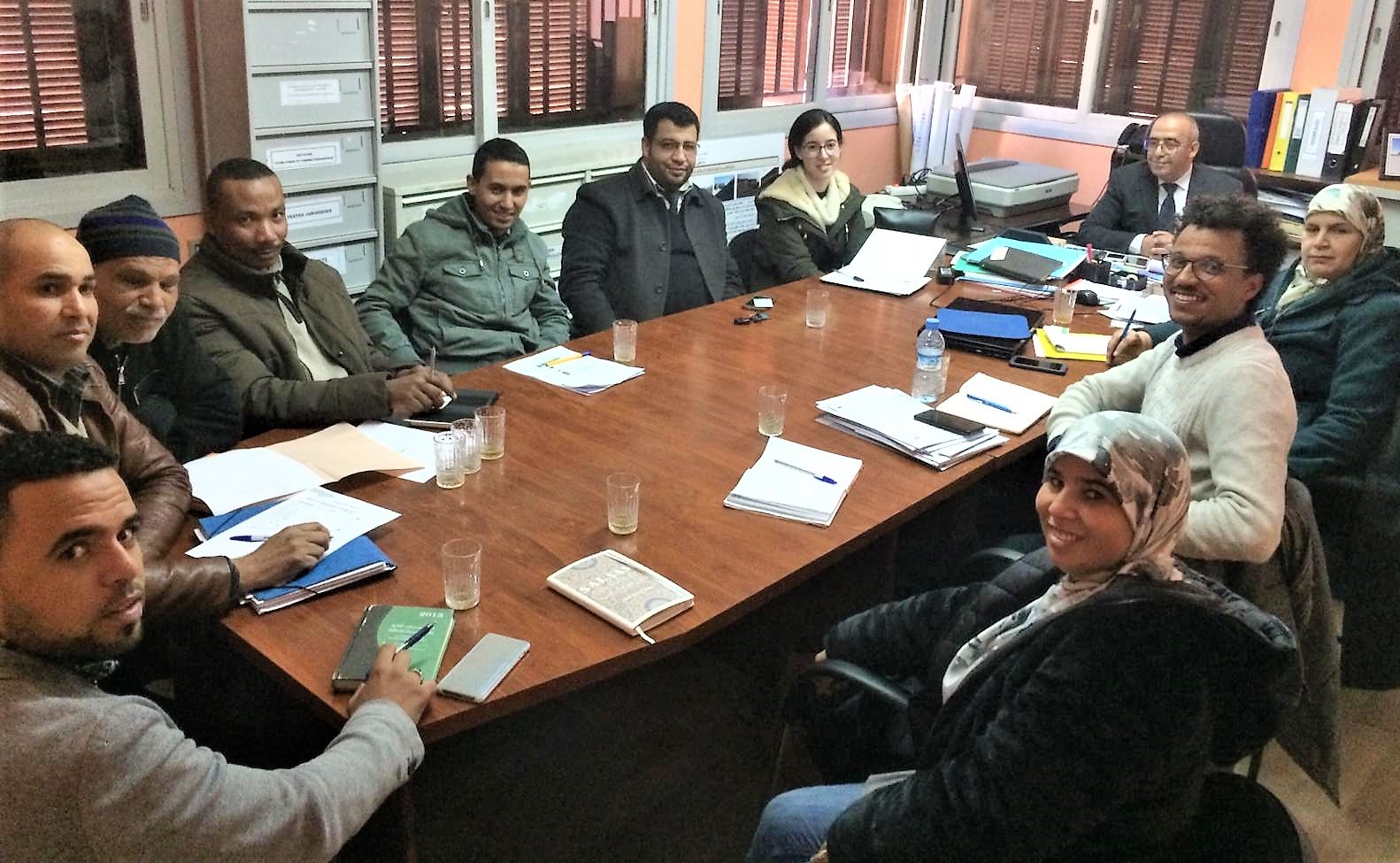
By Nora Martetschläger HAF Intern Last week, I had the chance to experience part of developing our new HAF tree nursery. Together with my colleagues Amina and Said, I traveled around 200 kilometers from Marrakech to Ourzazarte, to meet relevant stakeholders of the new project at the governor’s office. The new HAF nursery will be
Climate Change, Environmental Laws and Environmental Decision-Making Workshop in Mohamed Vi High School
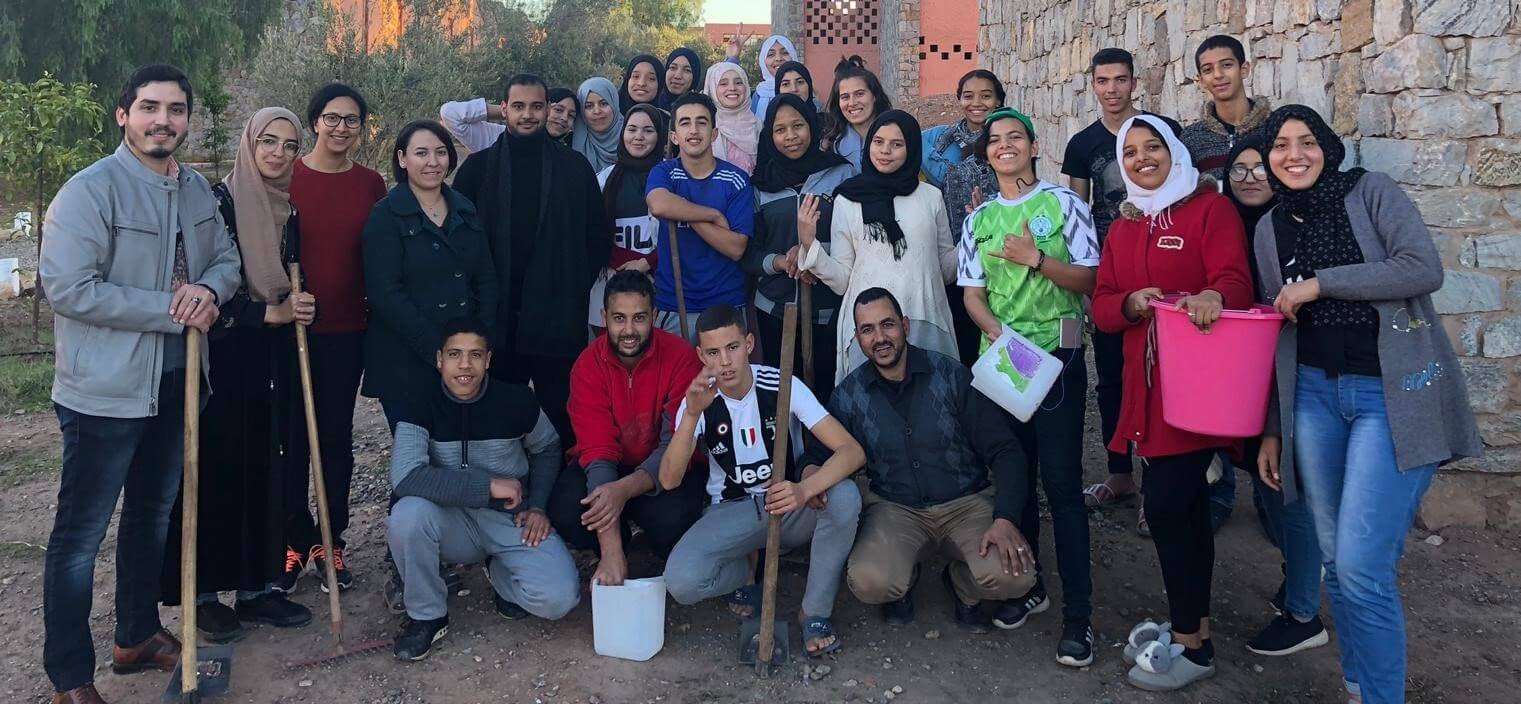
By Karam Yane Azzabi HAF Project Manager As part of the Bureau of Oceans and International Environmental and Scientific Affairs (OES) project activities, Imane and I – respectively the OES project manager and the OES coordinator in the High Atlas Foundation – went to the Mohammed VI Technical High School in Marrakech on Friday 27th of
يوم في أحضان مشاتل الأطلس
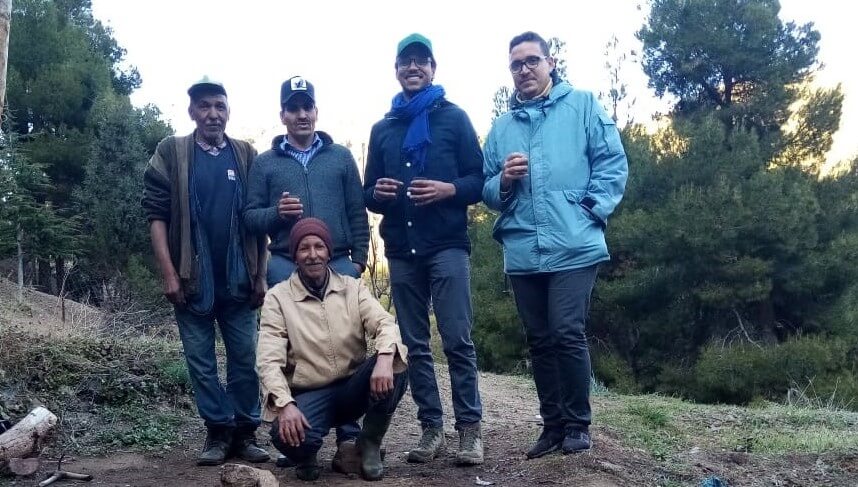
يقال أن لأعياد نهاية السنة سحر خاص فبعد مشاركتي أصدقاء لي عشاء الكريسمس، ذهبت في الصباح لمؤسسة الأطلس الكبير التي اتخذت من حماية البيئة و تشجيع التنمية المستدامة هدفا لها و التي أشتغل فيها متطوع. كعادته سعيد يحمل أخبارا سعيدة. بالله أمين نحن ذاهبون إلى الميدان فهل تود الحضور؟ نعم و كيف لا، فشرف لي
Field Trip to Toubkal: Heading Towards My Master Thesis
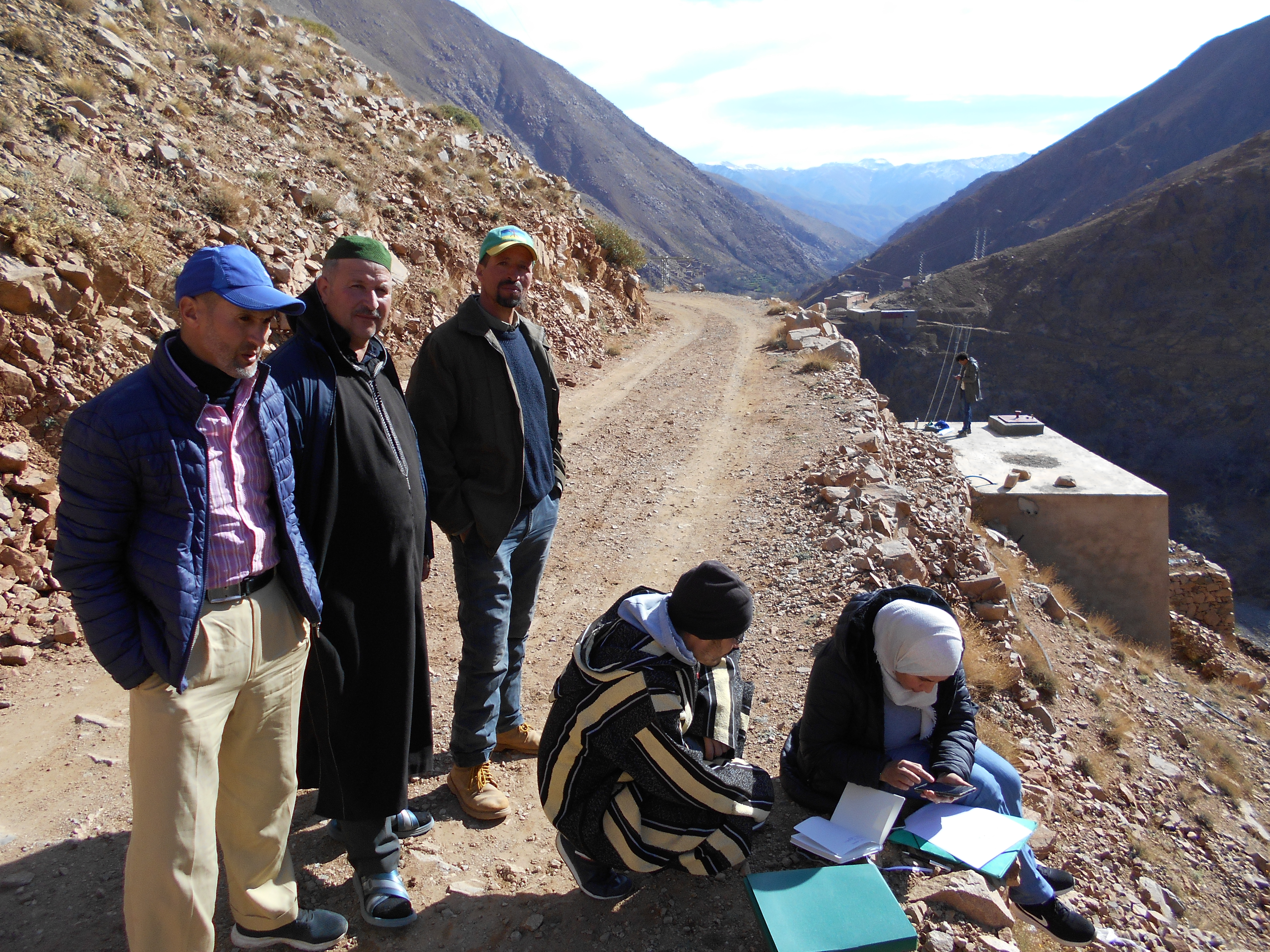
BY NORA MARTETSCHLÄGER HAF INTERN A new day, a new trip! After our visit on the Ouarzazarte nursery land Amina, Said and me traveled to the Toubkal commune in order to check the progress of expanding the nursery there. The journey itself definitely wasn’t one of my favorites – the road was very curvy, and
Empowering Rural Participation and Partnerships in Morocco’s Sustainable Development
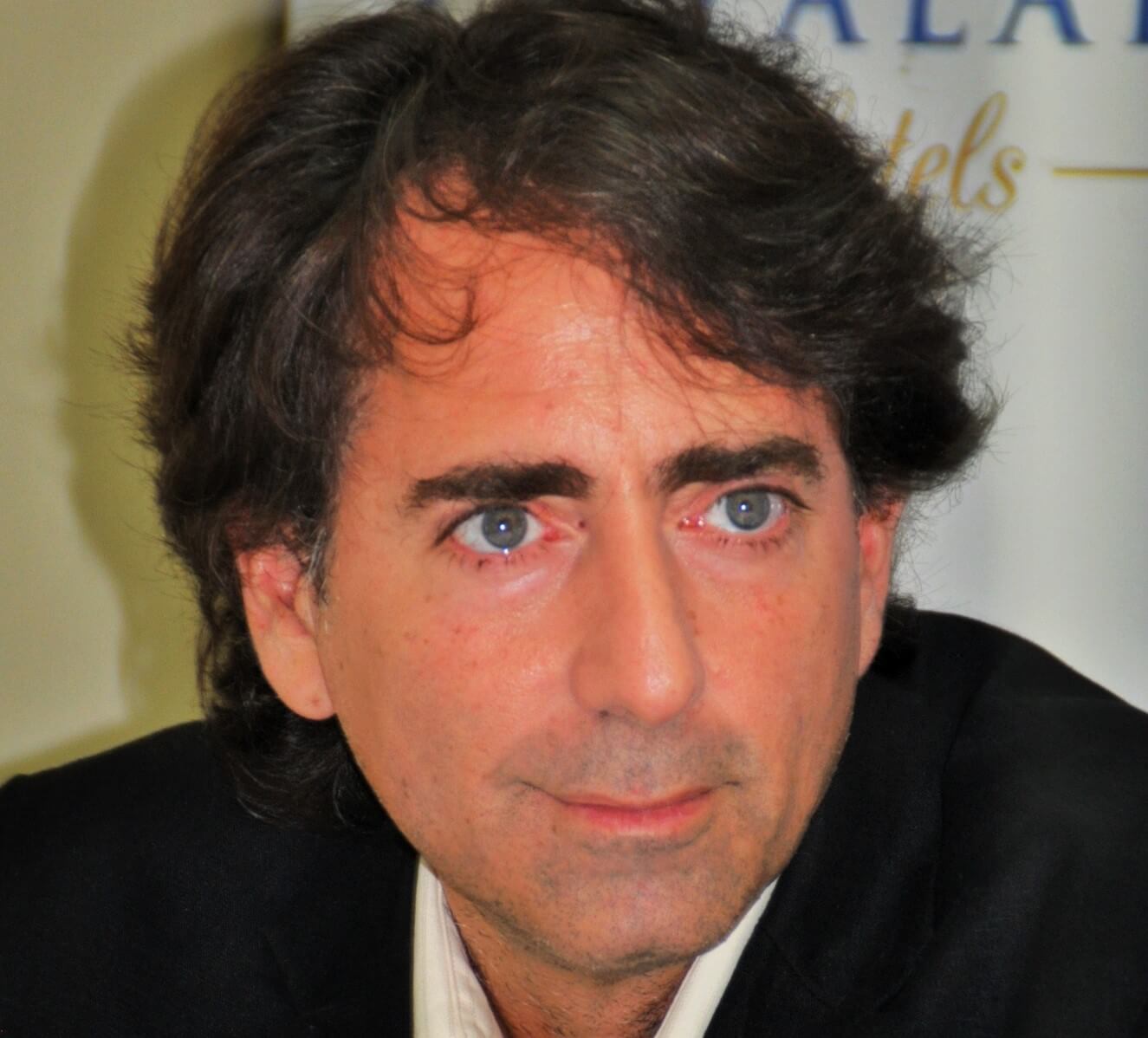
– Empowering Rural Participation and Partnerships in Morocco’s Sustainable Development, Journal of Global initiatives, By Yossef Ben-Meir (HAF President), 15 November 2019. Abstract This essay explores the vast potential for participatory and sustainable human development in Morocco. Though Morocco is a country with many diverse resources, it remains burdened by severe levels of poverty and illiteracy, and
It’s the Time to Plant Trees
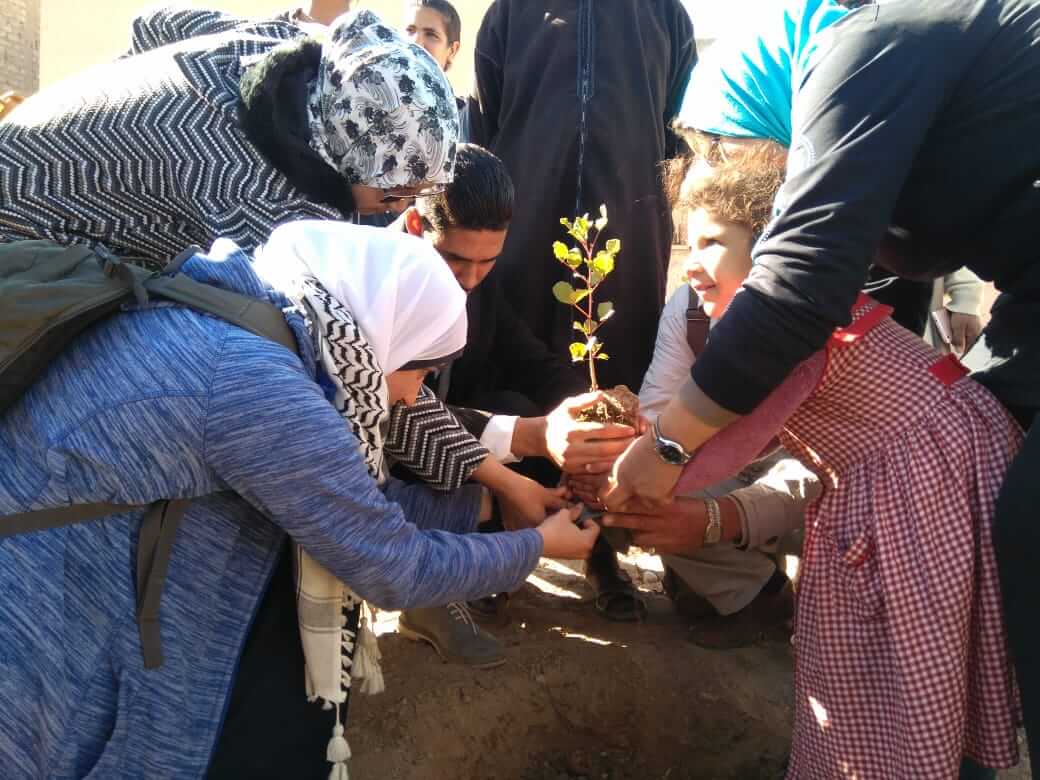
Dear Friend, The year has almost reached its end. For HAF, it’s the time to plant trees. Planting trees with farming families and schools in Morocco is an act of empowering recognition and strategic development. It acknowledges the priorities of rural communities and is a vehicle for people’s driven change and transformation. With complete hope
Climate Change Sensitisation and Adaptation: Planning in Zagora
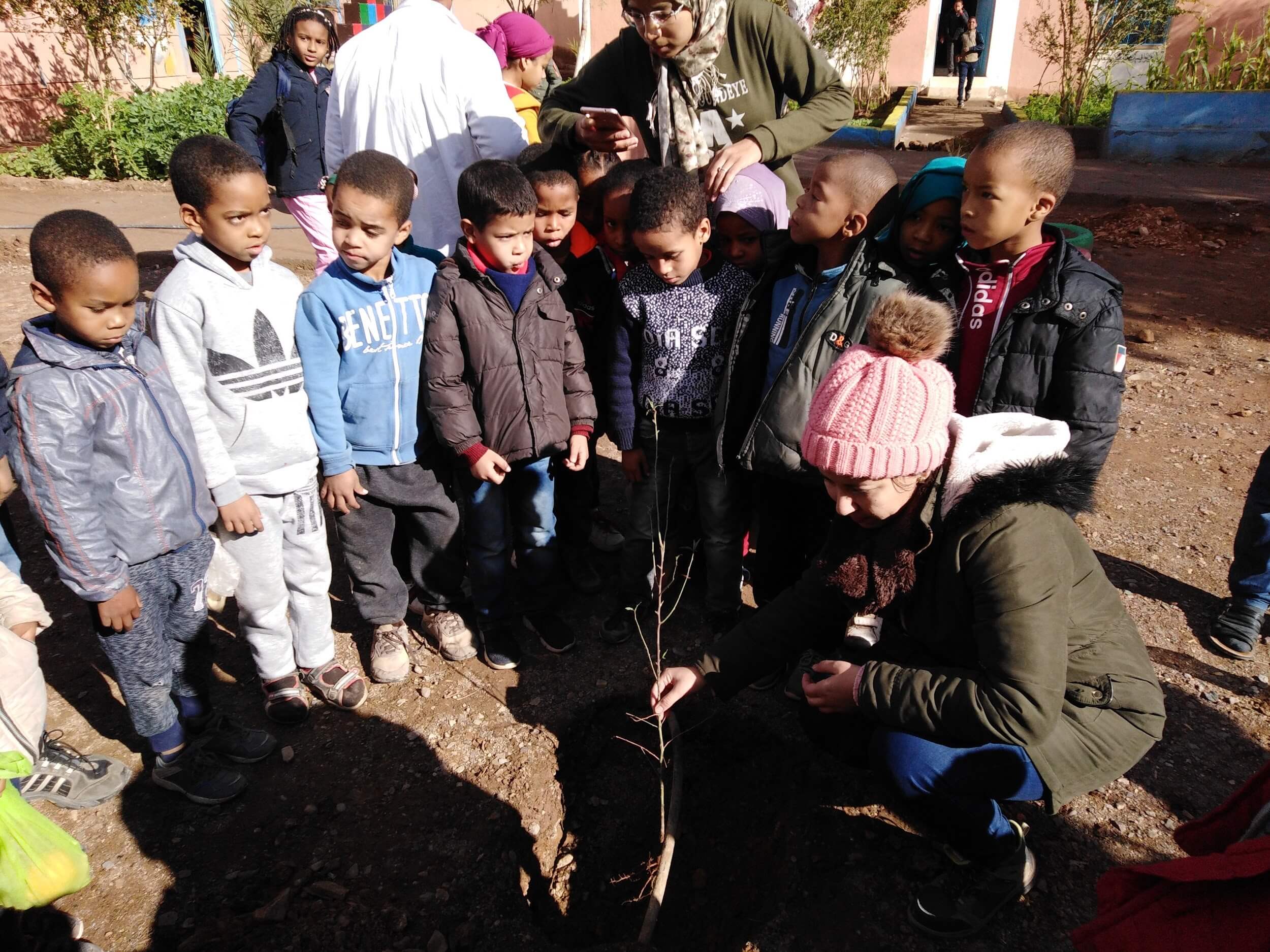
By Kerstin Opfer Operations Manager North Africa is one of the world’s most vulnerable regions to climate change and characterised by severe environmental degradation. This compromises already scarce natural resources and thereby the countries’ economic performance, which is heavily dependent on natural capital such as agriculture, phosphates, mineral resources and fisheries. This in turn also
Presenting at the International Renewable and Sustainable Energy Conference 2019
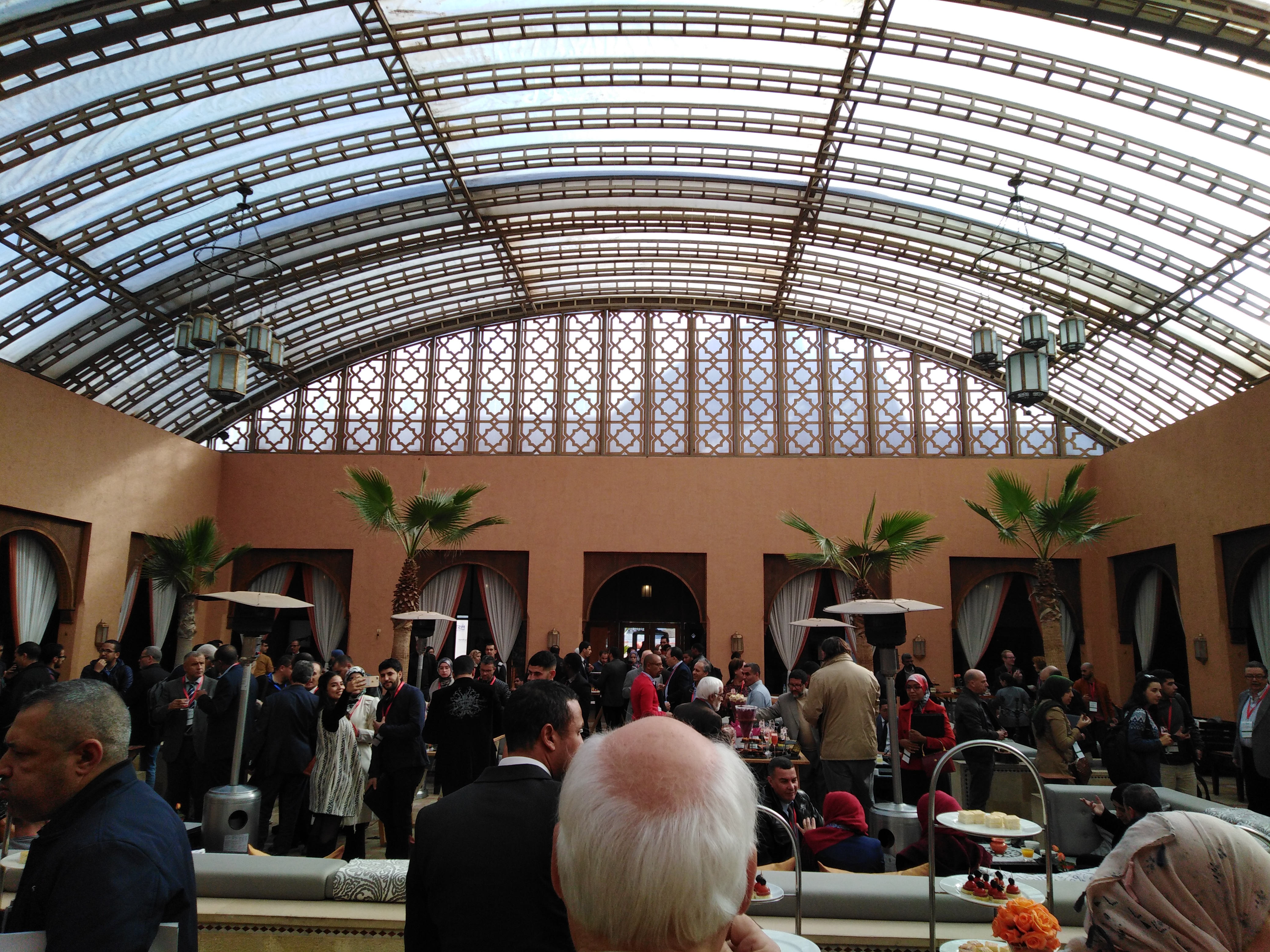
By Kerstin Opfer HAF’s Operations Manager We are living in a time where humankind faces an unprecedented challenge – it is the warmest it has ever been on earth since human presence. The dangers of climate change are known since the 1980s but a lack of will and societal awareness has inhibited the necessary vigorous
2020 Summer Program: HAF and the University of Virginia
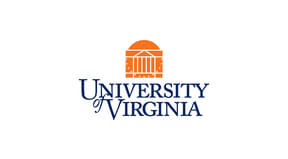
Dear Friend, We at the High Atlas Foundation (HAF) wish you a happy end of year and a fulfilling year ahead This Newsletter is an expression of our appreciation for the students from the University of Virginia (UVA) and elsewhere who spent the last two summers with us and will hopefully join us for summers
Mobilization of Metaphor: Moroccan Memories & Impressions of Haf
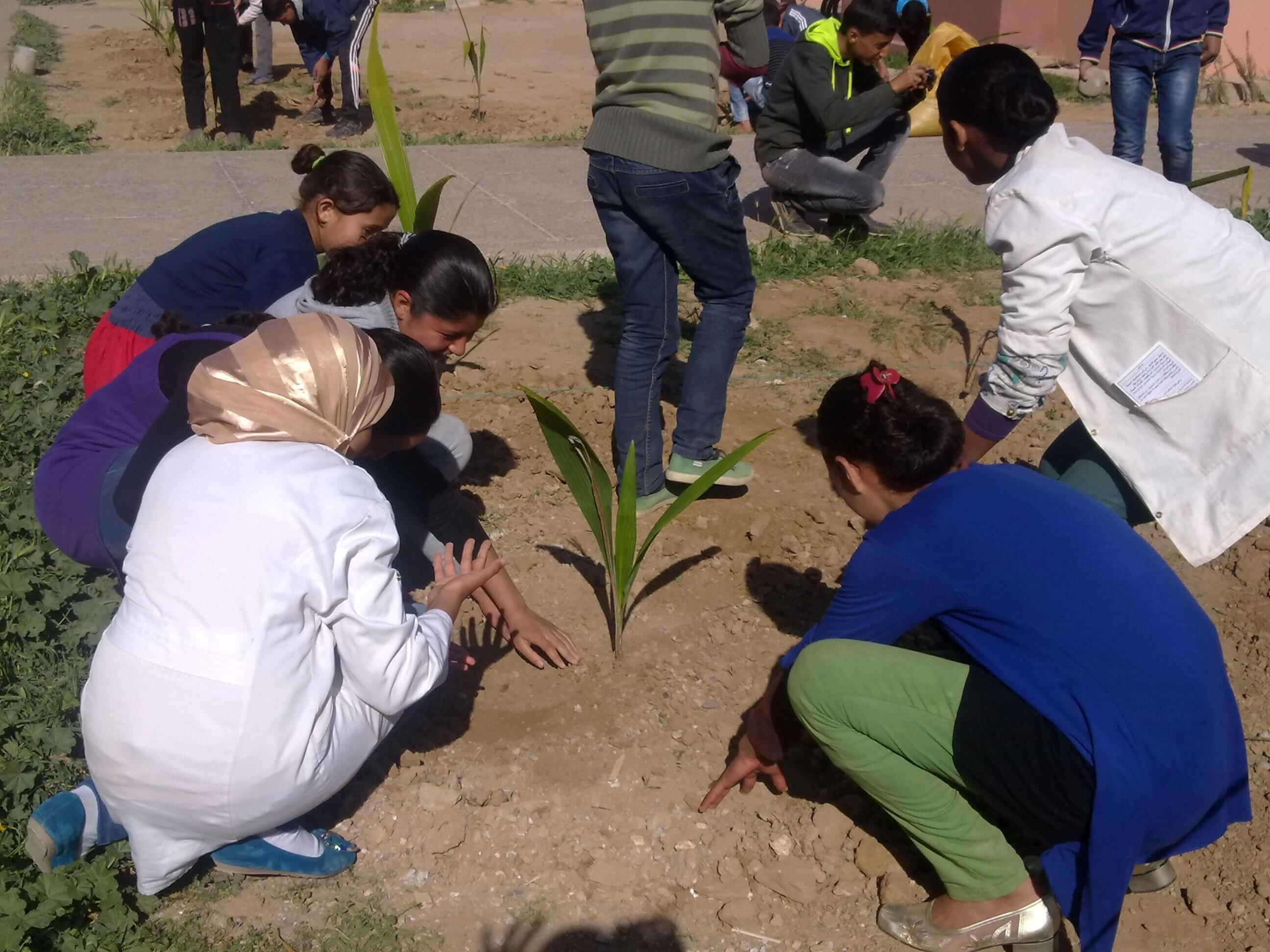
By Sheila HAF Friends Can faith but the size of a mustard seed move mountains? Can necessity garner supply? Can awareness prompt action? Can sharing forge success? Before the formation of HAF and upon my first arrival in Morocco, such questions rarely drew concern. There was a summer assignment to fulfil; I but one participant
Assessments in Youssoufia for USAID Farmer-to-Farmer
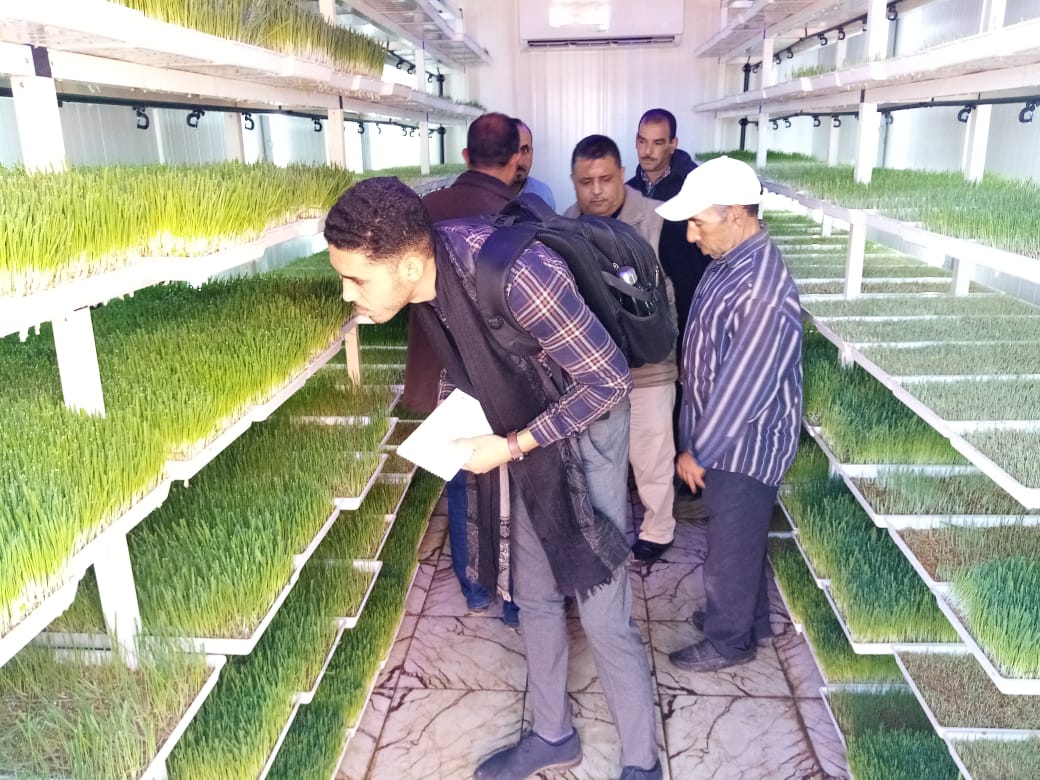
Project Manager Last week, HAF’s team members managing the USAID Farmer-to-Farmer program in Morocco visited three potential host organizations in the Youssoufia province, in order to conduct participatory needs assessments and prepare new assignments for the agricultural expert volunteers, great opportunities are presented to discuss project priorities and ideas by members to advance the growth
Giving Today for Better Days
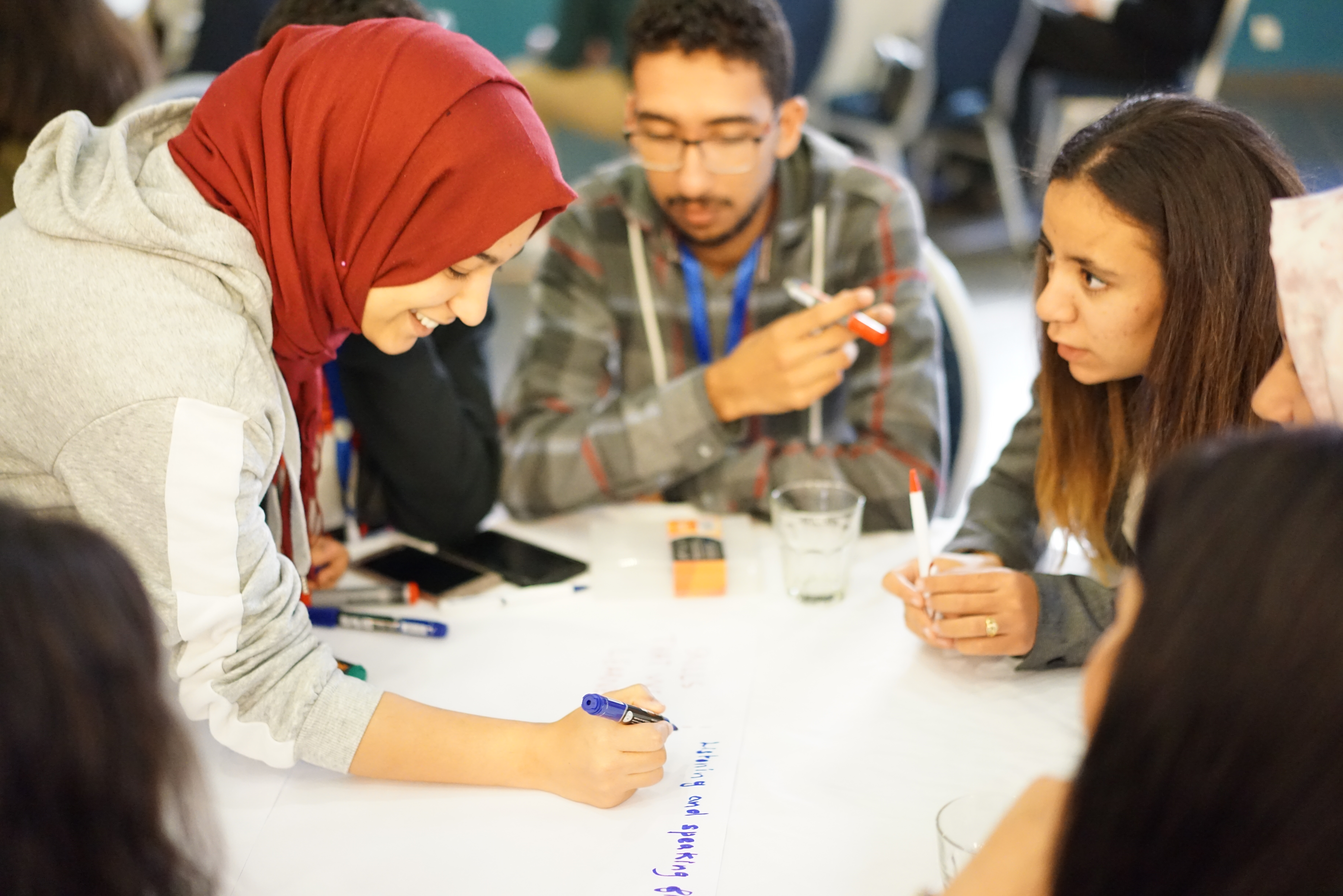
Dear Friend, There are fantastic reasons to give today to the High Atlas Foundation in Morocco: Women’s empowerment and girls’ education uplift our life’s fabric and are absolutely real outcomes of our work with families and communities. Fruit tree agriculture, building cooperatives, certifying organic, and processing food products for local and global sales form a
The High Atlas Foundation at the United Nations
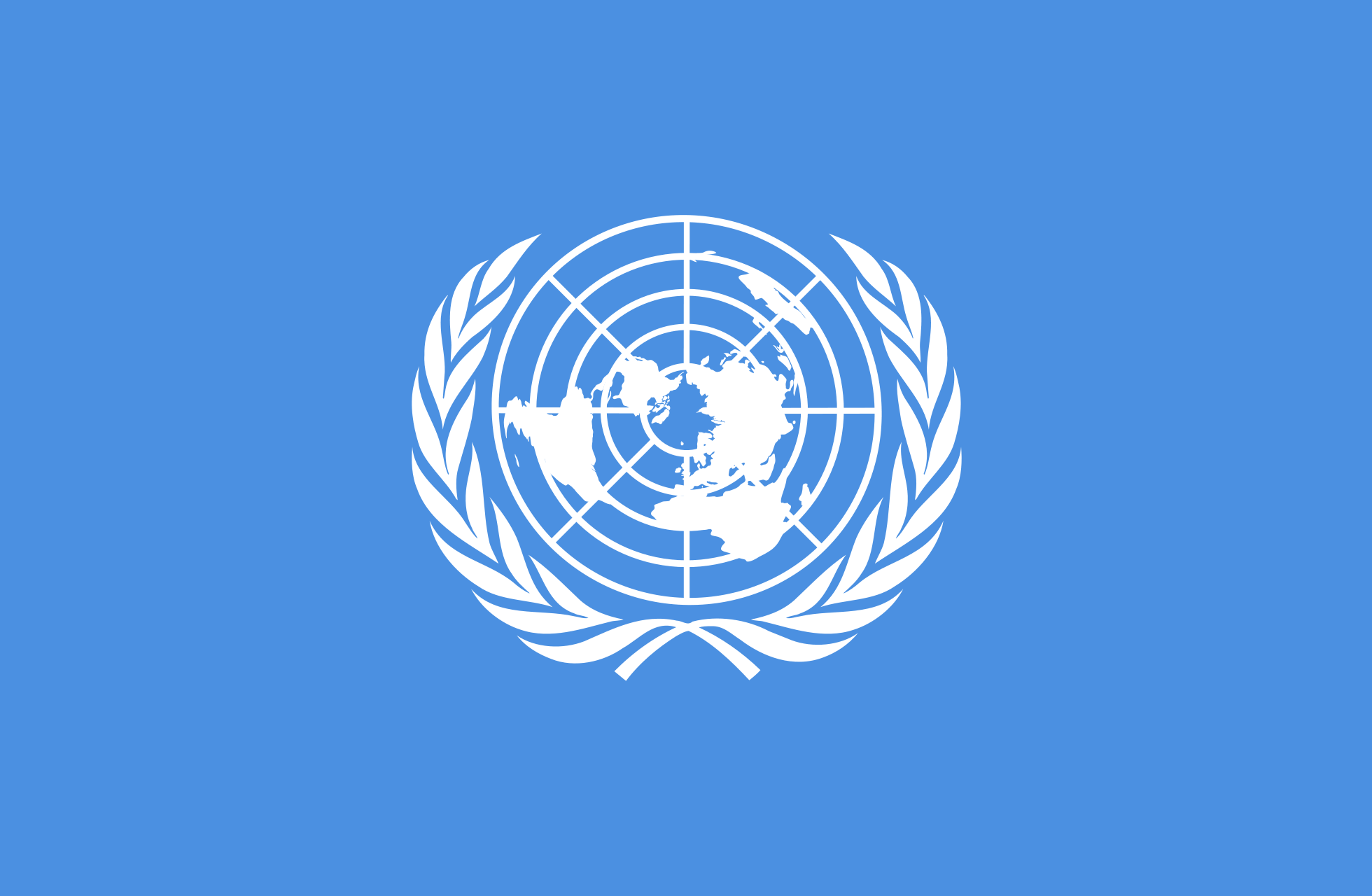
The High Atlas Foundation at the United Nations Dear Friend, This Newsletter presents the sustainable development work of the High Atlas Foundation and our fulfilling the Special Consultative Status at the Economic and Social Council of the United Nations that we have enjoyed since 2011. We are facilitators of development that local communities of Morocco seek, and
From Pomegranates to Pomegranates Juice
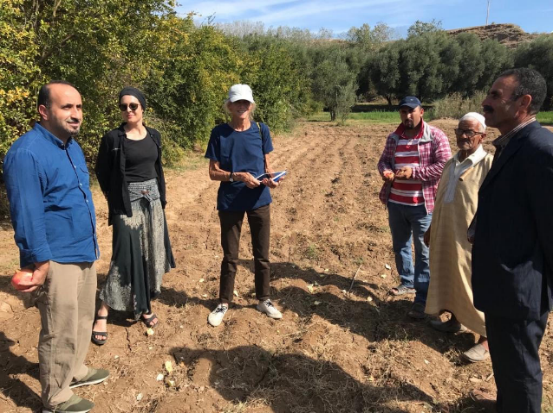
– آن ماري ديل كاستيلو تكتب: من الرمان إلى عصير الرمان, Non Online, 10 December 2019. By Anne Marie Del Castillo Farmer-to-Farmer Volunteer As a retired agricultural economist, I participated in the United States Agency for International Development’s (USAID) Farmer-to-Farmer (F2F) program in Morocco, administered by the High Atlas Foundation. F2F’s main goal is to generate sustainable, broad-based
Preserving the Landscapes of the Azzadene Valley
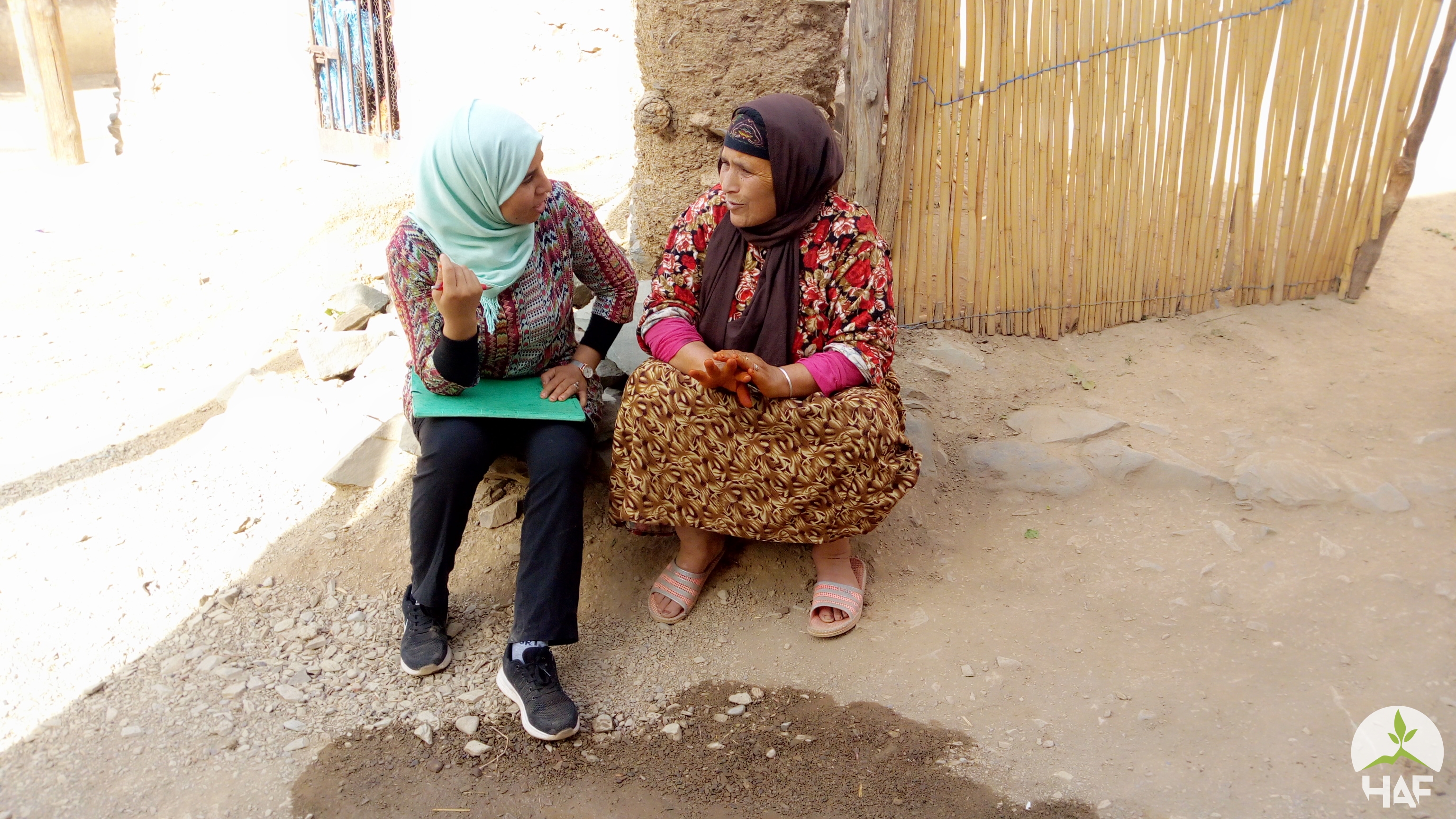
HAF Intern In recent years in Morocco, the succession of droughts, floods, unusual temperatures, negative changes of ecosystems and productive sectors, and fragile economic conditions are unlike previous decades. This necessitates redoubling development efforts involving economic, political, and civil society actors to counter these adverse effects of climate. This is why the Moroccan government has


